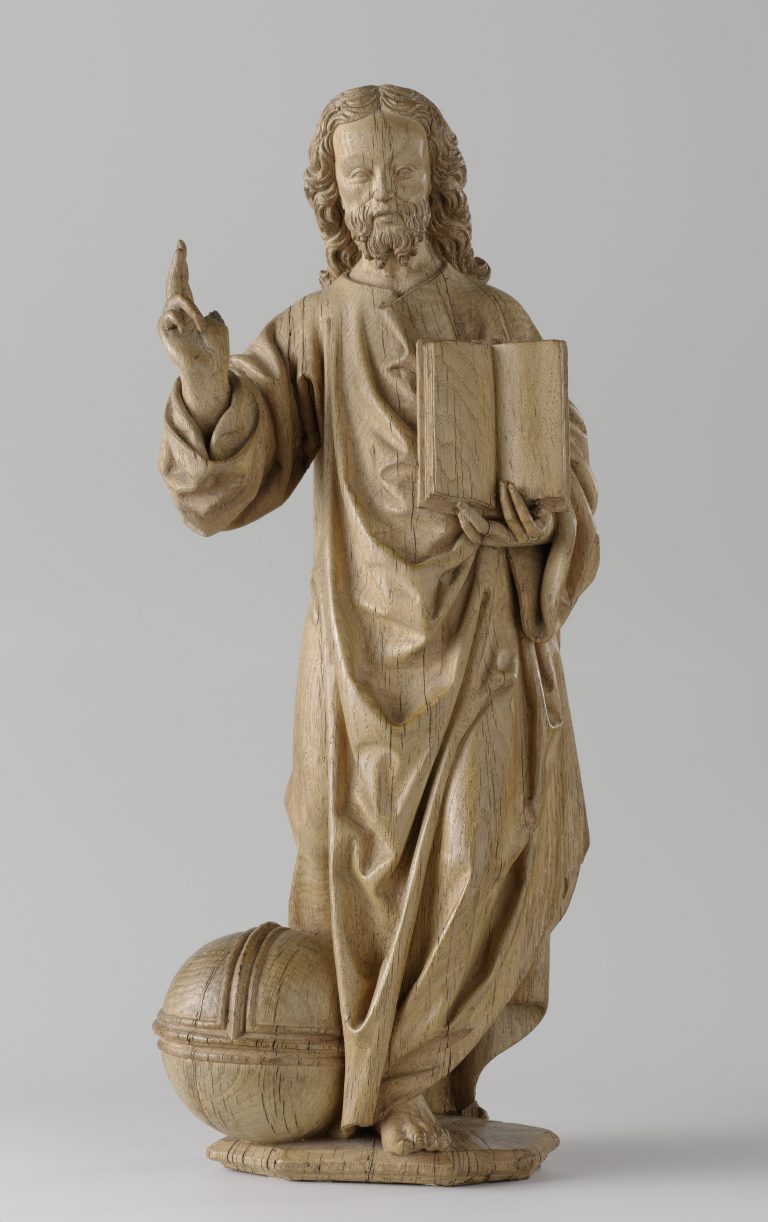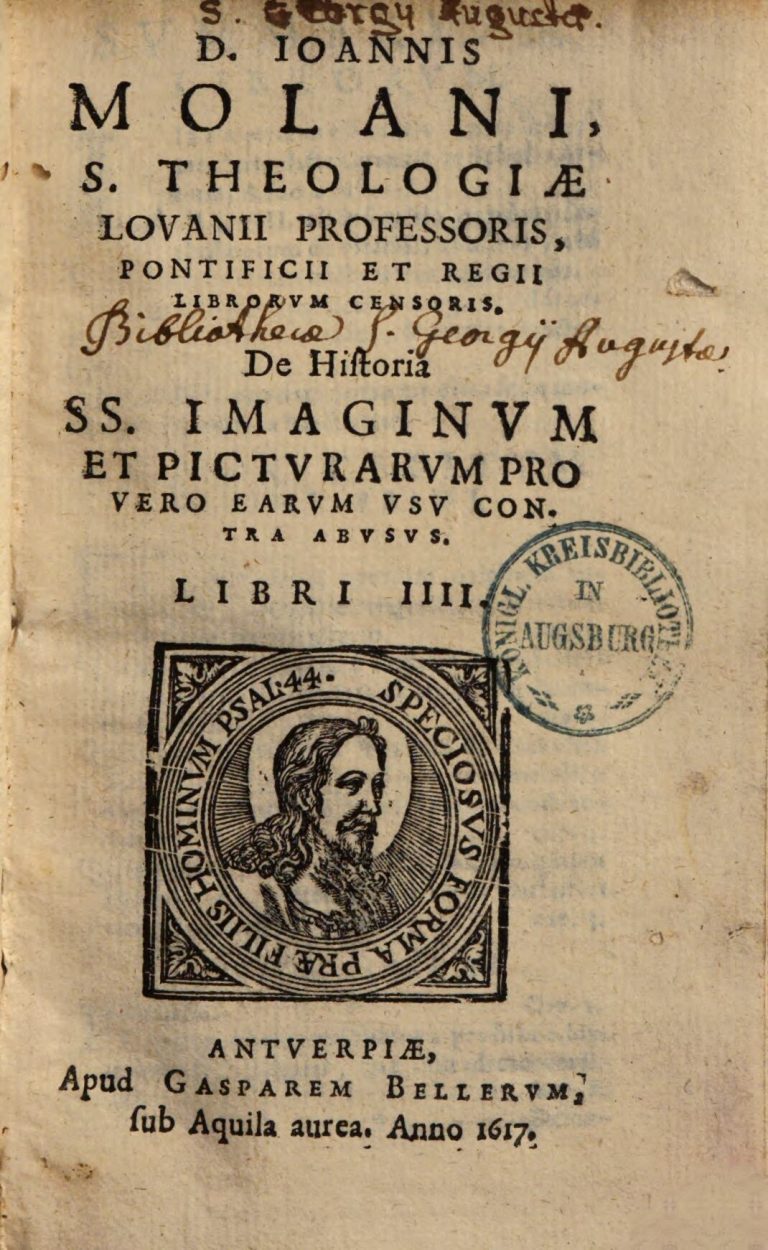
Rijksmuseum, Amsterdam, http://hdl.handle.net/10934/RM0001.COLLECT.33730
In book 2, ch. 18, Molanus gives several examples of iconographic traditions of his time which, according to him, are suitable for the decoration of Churches. He does not so much regard them from an esthetical point of view and neither from a mere iconographical point of view, instead his main point of interest is how well-established the stories are on which they are based. This is in line with the argument he first discusses in this chapter.
The first example of iconography Molanus mentions is that of Christ depicted as the Salvator Mundi, holding a globe and the sign of the cross; Molanus then refers to Isaia 40, 12, Colossus 1, 19-20, and Timothee 2, 3-6 to demonstrate that this is an iconography based on a well-established tradition.
“The one depicting our Saviour holding the globe in his hand, surmounted by the sign of the cross, belongs to this type of painting. Indeed, it is to him that the words of Isaiah apply: ‘Who has measured the waters in the hollow of his hand, and in his palm weighed the heavens? Who holds up with three fingers the whole mass of the earth?’ And what Paul says: ‘God was pleased to reconcile all things through him and in him, both on earth and in heaven, by making peace through the blood of his Cross. And then: Our Saviour wants all men to be saved and to come to the knowledge of the truth. For there is only one God, and one mediator between God and men, Jesus Christ, a man himself, who gave himself for the redemption of all.'”
“Ad huiusmodi picturas pertinet quod Salvator noster pingatur man tenens orbem terrarum, superposito crucis signo. Ipsi enim competit quod Esaias ait: ‘Quis mensus est pugillo aquas et coelos palmo ponderavit? Quis appendit tribus digitis molem terrae?’ Et illud Pauli: ‘per eum complacuit reconciliare omnia in ipsum, pacificans per sanginem crucis eius, sive quae in terris, sive quae in coelis.’ Et alibi: ‘Salvator noster omnes homines vult salvos fieri et ad agnitionem veritatis venire. Unus enim Deus, unus mediator Dei et hominum, homo Chrisus Iesus, qui dedit redemtionem semetipsum pro omnibus.'”




Molanus 1996, 173.



